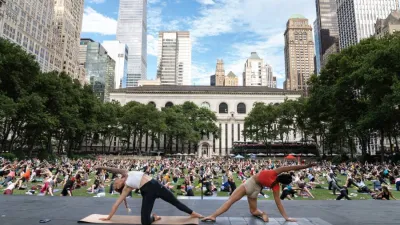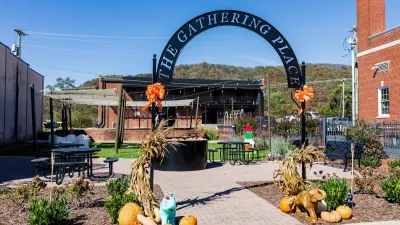In an essay for The Guardian, Jonathan Meades laments the "cult" of architecture and argues why "[a]ppointing architects to conceive places is like appointing foxes to advise on chicken security."
In an all-out assault on Architecture, Meades rails on everything from the profession's "smugly hermetic milieu" and "mutual dependence," to "architects' lack of empathy." His main complaint seems to be with the general inability of architects to create places, and the perpetual need to obliterate the "layers of urban archaeology," that Meades cherishes, in the drive to find the next "non-place where derivative architecture can gloriously propagate itself with impunity."
While Meades mentions a few select projects for praise, including Ledoux's Arc-et-Senans and Le Corbusier's l'Unité d'Habitation, "[t]hey
are the exceptions to the rule that planned towns, tied towns, new
towns, garden cities, garden villages, communist utopias, national
socialist utopias, socialist utopias, one-nation utopias, comprehensive
developments and wholesale regenerations that lurch between the mediocre
and the disastrous."
"It
doesn't matter what idiom is essayed," continues Meades, "it is the business of attempting
to create places that defeats architects. Architects cannot devise
analogues for what has developed over centuries, for generation upon
generation of amendments. They cannot understand the appeal of
untidiness and randomness, and even if they could they wouldn't know how
to replicate it."
FULL STORY: Architects are the last people that should shape our cities

Americans May Be Stuck — But Why?
Americans are moving a lot less than they once did, and that is a problem. While Yoni Applebaum, in his highly-publicized article Stuck, gets the reasons badly wrong, it's still important to ask: why are we moving so much less than before?

Using Old Oil and Gas Wells for Green Energy Storage
Penn State researchers have found that repurposing abandoned oil and gas wells for geothermal-assisted compressed-air energy storage can boost efficiency, reduce environmental risks, and support clean energy and job transitions.

Placekeeping: Setting a New Precedent for City Planners
How a preservation-based approach to redevelopment and urban design can prevent displacement and honor legacy communities.

San Francisco’s Muni Ridership Grew in 2024
The system saw its highest ridership since before the Covid-19 pandemic, but faces a severe budget shortage in the coming year.

Colorado Lawmakers Move to Protect BRT Funding
In the face of potential federal funding cuts, CDOT leaders reasserted their commitment to planned bus rapid transit projects.

Safe Streets Funding in Jeopardy
The Trump administration is specifically targeting bike infrastructure and other road safety projects in its funding cuts.
Urban Design for Planners 1: Software Tools
This six-course series explores essential urban design concepts using open source software and equips planners with the tools they need to participate fully in the urban design process.
Planning for Universal Design
Learn the tools for implementing Universal Design in planning regulations.
Heyer Gruel & Associates PA
City of Moreno Valley
Institute for Housing and Urban Development Studies (IHS)
City of Grandview
Harvard GSD Executive Education
Salt Lake City
NYU Wagner Graduate School of Public Service
City of Cambridge, Maryland




























